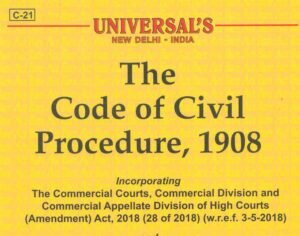Generalia Specialibus Non Derogant: A Deep Dive into a Cornerstone of Legal Interpretation
Table of Contents
- Introduction
- The Meaning and Origin of the Maxim
- Literal and Legal Definition
- Historical Roots
- Rationale: Why Does the Principle Exist?
- Legislative Intent
- Preventing Implied Repeal and Promoting Legal Certainty
- Convenience and Fairness
- Application: How Is the Maxim Used?
- Statutory Interpretation
- Example (Employment Law)
- Example (Traffic Laws)
- Limitations
- Case Law: Illustrative Examples
- India
- Common Law Jurisdictions
- International Law
- The Maxim and Non-Obstante Clauses
- Criticism and Limitations
- Not Absolute
- Modern Context
- Generalia Specialibus Non Derogant: Comparative Perspective
- Application in the European Union
- US Perspective
- Related Doctrines
- Recent Use and Continuing Importance
- Conclusion
Introduction
The phrase generalia specialibus non derogant is a foundational principle of legal interpretation, echoing through the statutes and case law of jurisdictions around the world. Translated from Latin, it states that “general provisions do not derogate from specific ones.” In practical terms, if two legal rules or statutes apply to a situation—one general, the other particular—the specific provision prevails in the event of a conflict.
Understanding this maxim, its origin, its rationale, and its application is essential for anyone interested in the intricate mechanics of law. The following article offers an in-depth look at generalia specialibus non derogant: its historical context, theoretical underpinning, notable real-world cases, and continuing relevance.
The Meaning and Origin of the Maxim
Literal and Legal Definition
- Literal meaning: “General things do not derogate from specific things.”
- Legal definition: When a conflict arises between a general law and a special law (or provision), the special law prevails, and the general law yields to it as far as the specific subject matter is concerned.
The maxim is closely aligned with the lex specialis doctrine, which carries the same effect: the lex specialis (the special law) overrides the lex generalis (the general law) in matters where both could apply.
Historical Roots
The principle has its roots deep in Roman law and was subsequently absorbed into English common law and international legal systems. Early courts and jurists recognized that laws tailored for specific circumstances reflected a more focused and deliberate intent and should not be casually displaced or overridden by broader, more recent enactments.
Rationale: Why Does the Principle Exist?
Legislative Intent
When lawmakers pass a special law, it is presumed they do so with a conscious focus on a specific subject. If a later general law is enacted without explicitly repealing or modifying the special law, courts assume the legislature intended for the special law to remain unaffected unless a contrary intention is “very plainly and manifestly declared”.
Preventing Implied Repeal and Promoting Legal Certainty
Statutes are not to be repealed by implication unless two provisions are “so inconsistent or repugnant that they cannot stand together.” The maxim thus protects the stability and predictability of the law by ensuring that highly targeted legislation is not unintentionally swept aside by the broad strokes of general statutes.
Convenience and Fairness
Specific laws reflect deliberate policy decisions for specialized scenarios. Applying a general law indiscriminately can lead to unjust or absurd outcomes, undermining the effectiveness and legitimacy of both statutes.
Application: How Is the Maxim Used?
Statutory Interpretation
Judges resort to generalia specialibus non derogant when two laws or provisions—often enacted at different times—both appear to apply to the same issue but in conflicting ways. The courts must determine whether their operation can be harmonized or whether one should take precedence.
Example (Employment Law)
A general law may prohibit the use of mobile phones at work, but a company’s internal policy may allow employees to use their phones specifically for work-related communications. In a conflict, the specific work-related exception prevails.
Example (Traffic Laws)
The general speed limit on highways might be 65mph, but in construction zones, a specific law reduces it to 55mph. Here, during construction, the special rule always overrides the general one.
Limitations
This maxim is a presumption, not an absolute rule. If the legislature’s clear intention indicates that a general law should override the special law, that intention prevails, and the maxim does not apply. It is often said these maxims are “good servants, but bad masters”—useful, but always subject to context and purpose.
Case Law: Illustrative Examples
India
- State of Gujarat v. Patel Ramjibhai (AIR 1980 SC 1707): The Supreme Court affirmed that the special statute prevails over the general. A particular provision governing a specific subject is not considered repealed or altered by a later general law unless the latter manifests an intention to do so.
- Paradip Port Trust v. Their Workmen (1977 AIR 36, 1977 SCR (1) 561): Here, the specific provisions in the Industrial Disputes Act relating to representation by legal practitioners prevailed over the general rules in the Advocates Act, which controls legal representation generally.
- Dharam Pal Sat Dev v. CIT, Nandlal Sohanlal v. CIT: These cases involved the interplay between the Income Tax Act (special) and the Indian Partnership Act (general); the special provisions of the tax law prevailed.
- Dilawar Singh v. Parvinder Singh @ Iqbal Singh (Supreme Court of India, 2005): When the Prevention of Corruption Act contained special procedural rules, they took precedence over general procedures in the Code of Criminal Procedure.
Common Law Jurisdictions
- R v Greenwood (Ontario Court of Appeal, Canada): Justice Griffith declared the general statute must yield to the specific, emphasizing its use for resolving statutory conflicts.
- Greenshields v. The Queen: The Canadian Supreme Court held that implied repeals are disfavored, and special acts are not annulled by broad generalities in later acts unless expressly stated.
International Law
- The lex specialis doctrine underpins much of international law, arguing that treaties or conventions addressing particular issues prevail over broader international legal norms in matters of overlap.
The Maxim and Non-Obstante Clauses
A non-obstante clause (“notwithstanding anything contained in…”) is an explicit legislative tool that signals clear intent for a special or general provision to override others. The maxim remains relevant even here: courts must carefully ascertain which provision the legislature intended to dominate, especially when the clause is ambiguous or both laws contain such clauses.
Criticism and Limitations
Not Absolute
While it provides structure, this principle is always subject to legislative intent. If the general statute indicates a clear purpose to displace the special one, or if the statutes operate in entirely different fields, the maxim may not apply. Overreliance can impede needed legal reforms or perpetuate outdated rules.
Modern Context
With laws becoming increasingly complex and interwoven, distinguishing between “special” and “general” statutes is not always straightforward. Recent courts emphasize a contextual, purposive interpretation over mechanical application.
Generalia Specialibus Non Derogant: Comparative Perspective
Application in the European Union
EU jurisprudence applies a similar framework, especially when reconciling broad foundational treaties with highly targeted regulations. For instance, detailed consumer protection directives often override the baseline principles of broader economic freedoms.
US Perspective
American courts use the “specific-governs-the-general” canon, often citing it as a basis for favoring statutes with detailed requirements on an issue over broad statutes that would otherwise appear to apply.
Related Doctrines
- Lex Posterior Derogat Legi Priori: The later law repeals the earlier one, but only if both are on the same subject and absolutely repugnant.
- Ejusdem Generis: When general words follow specific ones, the general words are interpreted to include only items of the same type.
- Expressio Unius Est Exclusio Alterius: The express mention of one thing excludes all others. All these canons interact with generalia specialibus non derogant in judicial reasoning.
Recent Use and Continuing Importance
- The maxim continues to be a cardinal principle of statutory construction in India and common law countries, guiding courts in resolving statutory ambiguities and protecting the integrity of deliberately crafted legal policies.
- Recent Supreme Court pronouncements underscore its relevance in administrative, criminal, and civil law.
Conclusion
Generalia specialibus non derogant acts as a safeguard for legislative intent and legal certainty. By ensuring that special laws—carefully tailored for unique contexts—are not unintentionally erased by the enactment of general provisions, it sustains the delicate architecture of statutory law. Like all canons of construction, it is a tool for serving justice and clarity, not an end in itself. Courts are always cautious to balance its application against the broader context, purpose, and textual clarity of the laws involved.
In an ever-more complex legal landscape, generalia specialibus non derogant remains a touchstone for principled statutory interpretation: a vital compass for lawmakers, judges, and practitioners alike.
Key Takeaway:
When special and general laws collide, the special prevails—unless the legislature’s intent decisively says otherwise. This ancient maxim roots itself in enduring logic, shaping law by honoring the specific over the sweeping, the targeted over the universal.
This article offers an overview based on leading treatises, case law, and legal scholarship as reflected in multiple jurisdictions up to July 2025.
References:
- https://www.scribd.com/document/810274569/Generalis-Specialibus-Non-Derogant-Know-all-about-it
- https://www.scribd.com/presentation/840702655/General-and-special-statutes
- https://content.next.westlaw.com/practical-law/document/Id50051cae1b011e698dc8b09b4f043e0/Generalia-specialibus-non-derogant?viewType=FullText&transitionType=Default&contextData=%28sc.Default%29
- https://www.scribd.com/document/534321038/generalia-specilibus-non-derogant
- https://www.studocu.com/in/document/gauhati-university/bachelor-of-law-llb/generalia-specialibus-non-derogant-law-column/114141370
- https://uk.practicallaw.thomsonreuters.com/w-005-5210?transitionType=Default&contextData=%28sc.Default%29
- https://www.casemine.com/search/in/Generalia+Specialibus+non+derogant
- https://uk.practicallaw.thomsonreuters.com/w-005-5210?contextData=%28sc.Default%29&firstPage=true&transitionType=Default
- https://indiankanoon.org/search/?formInput=generalia+specialibus+non+derogant+doctypes%3Asupremecourt
- https://www.lexisnexis.co.uk/legal/glossary/generalia-specialibus-non-derogant
- https://fr.scribd.com/document/534321038/generalia-specilibus-non-derogant




